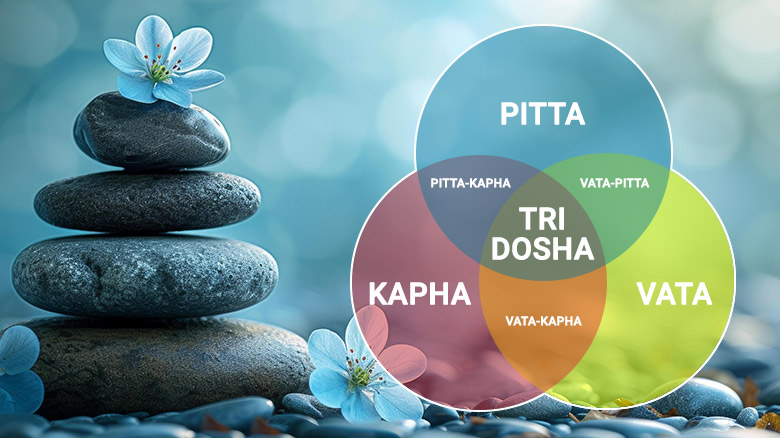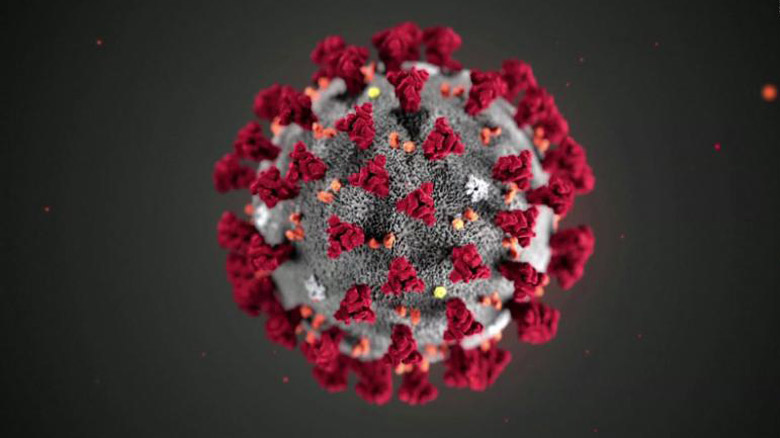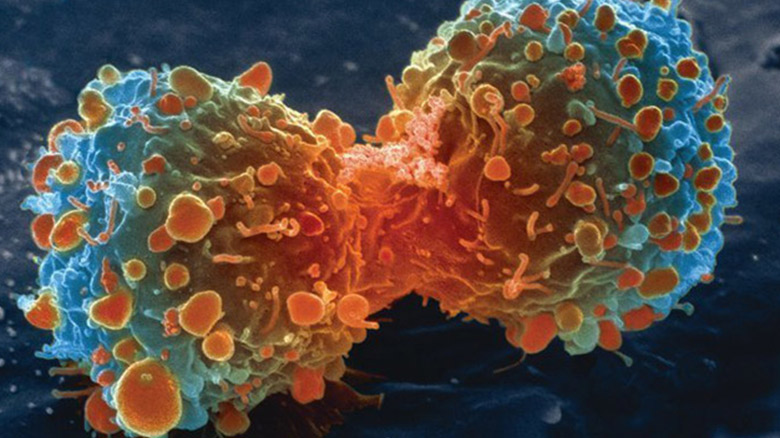
- Based on the scientifically proven and eternal principles of Ayurveda, Vata, Pitta and Kapha are called as “Dosha”. Collectively they are also called as “Tridosha”.
- Dosha, does not mean “Fault”, “Mistake”, “Lacunae”, “Defect” or “Defective quality”. They are called Dosha, because Doshas are the “Substances” which are the first to get affected by any kind of infection, injury, chemicals etc. or even by your own abnormal metabolism and aging.
- Some are born with abnormal Doshas by inheriting genetic defects / pathologies of Sperm and Ova or even due to genetic injuries in pre-natal phase, poor nourishment, stress, wrong diet, weather, geographical environments, pollution, infections and serious diseases to the biological mother etc.
- Doshas decide our personality (constitution), which lasts for the lifetime and cannot be changed. Though innumerable combinations are possible for varied types of constitutions, there are seven major personalities as seen and described in the treatise, depending upon the predominance of either of the Dosha, namely: Vata, Pitta, Kapha, Vata-Pitta, Vata-Kapha, Pitta-Kapha and Tridosha (All of the three: Vata-Pitta-Kapha).
- Harmony of these three Doshas is responsible for good health, vigour and longevity.
- Abnormality or imbalance of Dosha are responsible or is the root cause all the diseases.
- Vata Dosha is the “Kinetic Force”, it is the most vital Dosha, responsible for all micro and macro movements in the body and for all our external actions, namely: talking, walking, running, bending, sitting, standing, throwing, holding, typing etc. It is said that, Vata is responsible for the movements of other two Doshas, Kapha and Pitta; and these two Doshas flows or move in the body as per the directive of Vata. Vata is affected by excessive talking, shouting, stress, lack of adequate nightly sleep, excessive walking, running, stress, prolonged illness, aging, by eating stale food, dryness, zero oiling, excessive consumption of pulses, legumes and in seasons like winters and pre-monsoon phase.
- Pitta is the “Digestive Force”, responsible for all digestion, metabolism, conversion of consumed food to bodily absorbable form. Responsible for neutralising the toxins. Pitta is affected by anger, shouting, heat, spicy food, oily food, heavy food, excessive sun exposure, late night sleeping, stress, alcohol, excessive salty, pungent food, seasons like summers and October heat.
- Kapha is the “Binding Force”, responsible for structural stability, holding, binding, shaping and also for facilitating smooth movements by coating the internal body organs, avoiding frictions among them. Kapha becomes abnormal due to lack of exercise, inactivity, lack of movements, prolonged sitting, rainy seasons, winter seasons, eating sweet, oily food, salty food, juices, carbohydrates, sugars etc.
- Recent research by Genetic Scientist, with various markers and biological factors have evidently proven the existence of these Dosha and started acknowledging the wisdom of our ancient scientist, called as “Rishi-Munis”*
Today Ayurveda’s Tridosha theory is gaining scientific validation and importance worldwide, in the current evidence based practice for developing personalized medince for prevention and treatment of various diseases. Recently, the ministry of Ayush, of Government of India, has launched mobile App called “Prakruti Parikashan App” for knowing individual’s Prakruti. It is available on Play store and one can safely download to know his/ her constitution (Prakriti) by following the instructions mentioned in it.
Dr. Nitin Kochar (MD- Ayurveda)
Senior Ayurveda and Panchakarma consultant for all chronic diseases and Cancers. Practicing since 1995.
*References:
1. Ayurvedic genomics: establishing a genetic basis for mind-body typologies -Journal. Alternative Complementary medicine 2008.
2. Ayurgenomics approach, Prakriti based drug discovery and development of personalized care, journal of Frontiers in Pharmacology, April 2022.
3. Genomics insights into Ayurvedic and western approaches for personalized medicine, Journal of Indian academy of sciences, 2016.
4. Ayurveda and Transdisciplinary approach for personalized and Preventive medicine, Indian Journal of Pharmaceutical sciences, December 2023.
5. Establishing the scientific validity of Tri Dosha, Journal of ancient science of life, vol. 29, 2010.
6. Ayurgenomics based frameworks in the precision and integrative medince: Translational opportunities, Published by Cambridge University Press, 2023.



